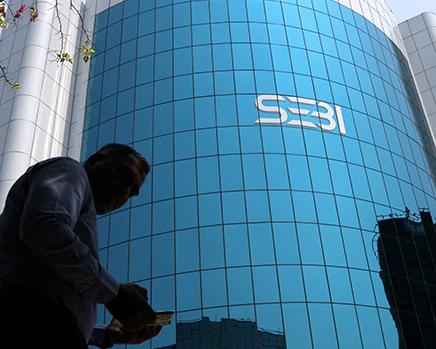

According to the proposals, the revised intraday limits for options will be ₹1,000 crore on a net basis and ₹2,500 crore on a gross basis REUTERS FRANCIS MASCARENHAS
SEBI’s F&O proposals could hit FPIs, prop traders
The Securities and Exchange Board of India’s proposals to revise gross and net position limits for intraday and end-of-day derivatives trading in index futures and options are likely to hit trading by foreign portfolio investors (FPIs), high networth individuals and prop desks of stock brokers, shrinking their exposure. This, in turn, will have an impact on derivatives volumes as a whole.
According to the proposals, the revised intraday limits for index options will be ₹1,000 crore on a net basis and ₹2,500 crore on a gross basis. The end-of-day limits will be ₹500 crore and ₹1,500 crore respectively. Similarly, limits have been revised for index futures as well.
“On the options side, the regulator has prescribed an intraday gross limit of ₹2,500 crore on a delta-adjusted basis. This could curtail the capital that can be used by FPIs, HNIs and prop desks of stock brokers to just ₹250-300 crore and leave the balance capital idle,” said a broker.
Some of the FPIs and large prop desks deploy ₹3,000-3,500 crore of capital in derivatives trading daily, of which a significant portion is in index options. This amount could shrink by a tenth, the person added.
“FPIs are being put off with so many changes and could shift to other markets or just make an exit. Derivatives volumes could potentially shrink by 60-70 per cent from the peaks,” said a senior broking official.
If an entity is short ₹2,500 crore notional ATM Call option, its delta adjusted value will be -₹1,250 crore (-0.5*2500). If the same entity is short ₹2,500 crore notional ATM Put option, the delta adjusted value will be +₹1,250 crore (0.5*2500).
The gross limit will be ₹2,500 crore (1250+1250). The capital that can be deployed by this entity will be about ₹325 crore, assuming a 13 per cent exchange margin.
The above is for an unhedged position. For an entity that uses capital to deploy only hedged positions, this figure will drop to ₹150 crore. “Since all large books would be running a mix of hedged and unhedged strategies, the maximum amount an entity can now deploy would be much lower than ₹300 crore,” said the first broker.
Hedging limits
According to Tejas Khoday, CEO, FYERS, traders won’t be able to hold large offsetting positions to mask real exposure by hedging, and the effective capital usage or capital deployed could reduce significantly.
The index F&O open interest will also be impacted in a big way, he said.
On Monday, Goldman Sachs trimmed its target price for BSE as 70 per cent of its average daily turnover came from proprietary traders, whose activity could be curtailed by the upcoming regulatory changes.